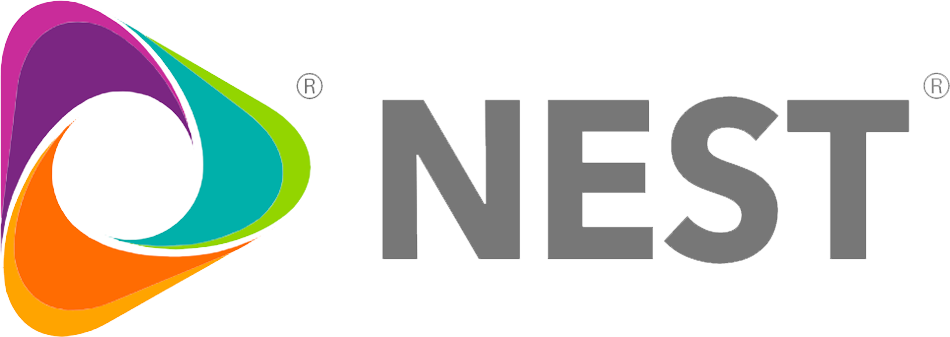Workplace culture is evolving rapidly, with many companies shifting to remote work models, managing different values and expectations from younger workers, and addressing social responsibilities more proactively.
These were just some of the issues discussed during “Workforce 2023: Remote Options, DEI, & Other Employee Expectations,” an engaging and timely panel session that was part of NEST’s 1st Annual IFM Summit held recently in Las Vegas.
NEST is the industry leader in Integrated Facilities Management (IFM) and provides multi-site facilities and construction management for some of the world's top brands.
Moderated by NEST Director of Marketing, Amy Bielecki, the conversation featured insights from leaders in the Human Resources (HR), Environmental, Social, and Governance (ESG), and Talent Management fields. They included: Eve Badecki, SVP, Human Resources, for American national bank TD Bank; Christina Beckman, Manager ESG, for global water treatment company Culligan International; and Jee Chung, Director, Talent Management at the resort The Cosmopolitan of Las Vegas.
Here are some of the top insights from the session.
The “9 to 5 for 5” Is Over
It’s no surprise that during the initial stages of the COVID-19 pandemic, millions of workers relocated to work from home. What’s become apparent since is that many of them prefer to stay there, at least part of the time.
Companies have responded in kind, shifting from the conventional 9-to-5, five-days-in-person model to more flexible alternatives, such as remote, hybrid, and a shorter work week.
“Since COVID, [The Cosmopolitan] has moved from an employees-in-seats culture to a productivity-outcome model,” explained Jee Chung.
“All my functions一Learning and Development, Internal Communicationsーwe can work from home 100 percent,” she continued. “But we don’t because we want to be here to support the [frontline] team when they need us.“
“We have to strike a balance between accommodating our Co-Stars [The Cosmopolitan’s term for employees] and Stars [hotel guests],” added Chung.
TD Bank uses a similar model.
“Our branch banks are open seven days a week, so our team hasn’t had the luxury of working from home,” said Eve Badecki. “But our back office [workers are] in a hybrid situation.”
“We’re trying to find anchor days [when several people work in the office together] to inspire collaboration and make the moments together matter,” she added.
Diversity, Equity & Inclusion (DEI) Initiatives Should Feel Organic
According to international professional services network Deloitte Touche Tohmatsu Limited (Deloitte), large multinational organizations made more than 1,000 public DEI commitments and pledged more than $210 billion to DEI initiatives over the last two years. In short, DEI is here to stay, but it can work differently depending on the organization.
Chung relayed they have a diverse workforce but don’t focus much on the numbers. Her message? DEI initiatives should feel organic. For example, The Cosmopolitan may hold special events to celebrate Black History Month, provide opportunities to try different cuisines, play varied cultural music in the background, or profile senior leaders of a particular group.
For Culligan International’s Christina Beckman, DEI is about whether your workplace is safe for workers to show up as their full selves.
“[According to employee feedback platform All Voices, in a 2021 survey,] nearly 45 percent of those surveyed were harassed in the workplace,” she explained.
“If you think of diversity as [a reflection of] the many identities we all have,” continued Beckman, “then [DEI] to me is about show[ing] up every day as your full self一with all your identities apparent一and being able to fulfill your duties.”
“It’s about psychological safety,” agreed Badecki. People have to feel safe to say, ‘I don’t understand’ or ‘I may disagree.’”
This, she contended, enables people to be their best selves一which is best for teams and the organization一a theme also discussed earlier by U.S. Air Force Fighter Pilot and IFM Summit Keynote Speaker Michelle “Mace” Curran.
Expectations From Younger Job Candidates Have Changed一a Lot
Chung identified three relatively new requirements popular among younger candidates currently: opportunities for growth and mentorship; the flexibility to work remotely; and an organizational focus on employee wellness.
As such, Chung has integrated policies and programs that respond to these issues, including a 10-week mentorship program, hybrid work options, and wellness initiatives.
Beckman suggested starting with benefits packages.
“If you’re a company that changes your logo during Pride Month, are your benefits actually inclusive of those people you say externally you’re supporting?” she asked. “It’s key that companies are walking the talk and not just posturing.”
Badecki shared her experience with her adult son, an insurance professional who recently moved to a new employer.
“What [was] most important to you?” she asked. “He told me, ‘[The new company] is aligned with what’s important to me, like giving back to the community.’ I thought he was going to say something about salary.”
Employees Are the Most Material Part of Any Retail Business
The final topic of the session concerned the current, unmet service-level expectations of in-store customers. According to a survey statistic read by Amy Bielecki, 40% of respondents said their in-store shopping experiences were less enjoyable than before the pandemic.
Of these respondents, almost two-thirds cited poorly trained or prepared retail staff, and 60% blamed inadequate staffing.
“How can we get the service levels and work ethic back to where they used to be pre [COVID-19] pandemic?” asked Bielecki.
While agreeing the statistic was alarming, Badecki also reminded the group that since COVID-19, we’ve experienced a global turnover of attrition.
“Forty percent of [employees] in stores now are brand new and being trained,” she explained. “We probably have unreasonable expectations walking in.”
The question is: What can we do to develop those professionals? Badecki recommended doubling down on mentorship and other professional development initiatives:
“Companies should think about leaning into their people managers,” she said. “Invest in your team and help them be better coaches and performance managers.”
Chung added that her team adopted the tagline “Return to Luxury” after COVID-19 to inspire and motivate workers to shift away from “survival mode” and return to delivering the luxury service their guests expected. It was an effective theme they weaved into training sessions, mentorships, and leadership communications.
Beckman closed with her thoughts on the pivotal role employees play in any business.
“Everyone in this room can agree一particularly if you’re in retail一your employees are the most material part of your business,” she explained. “It costs money to hire new people [and deal with] a huge attrition rate. If your employees are unhappy and turning over often, figure out why. They will always be the most material and expensive part of your business."
“Start with investing more in them,” she concluded.
Check out the audio link for the full discussion.
Learn More About the Panelists
Eve Badecki, SVP, HR Lead, for Retail and Commercial U.S. at TD Bank. Eve supports a portfolio of more than 200 executives and 10,000 U.S. colleagues in 15 states. Since joining TD in 2011, she has led many large-scale initiatives impacting thousands of colleagues and the organization.
Christina Beckman, Manager ESG, Culligan International. At Culligan, Christina leads global ESG efforts and brings the company purpose to life by distributing clean, safe water to the world. She’s an experienced ESG professional with a background in global Corporate Social Responsibility (CSR), social impact, public policy, and sustainability for public and private companies.
Jee Chung, Director of Talent Management, The Cosmopolitan of Las Vegas. Jee oversees the strategic planning and execution of the resort’s training, e-learning, and compliance efforts. She joined The Cosmopolitan in 2016 and has played an instrumental role in developing resort-wide service strategy and leadership programs.







